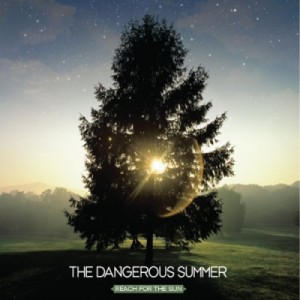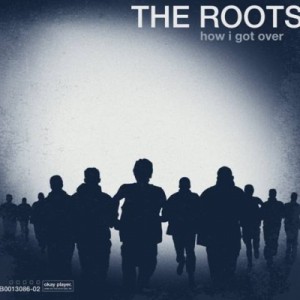Album Reviews
Review: Chiddy Bang – The Preview
Chiddy Bang – The Preview
Released: October 12, 2010
Label: EMI
Purchase: iTunes | Insound | Amazon
The Preview is exactly what it is packaged as: a preview. Standing as a placeholder for the duo’s upcoming debut album The Swelly Life, The Preview is an eight-track album: a perfect sampler of the group’s wide musical palette. For someone who may be new to the group’s music, this record is a perfect starting point, documenting their meteoric rise to fame.
“The main purpose of this release is to give our fans some new music while we finish recording our debut album, The Swelly Life. It’s called The Preview because it gives listeners a glimpse of what’s to come onSwelly,” says Xaphoon Jones.
The Preview features three tracks from the duo’s first mixtape, The Swelly Express, which was highly received and led to the group’s record deal with EMI. “Truth” features a sample from Passion Pit’s “Better Things”, “Opposite Of Adults” features MGMT’s “Kids”, and “All Things Go” samples Sufjan Stevens’s “Chicago”.
“Nothing On We” combines Chiddy’s clever, yet contemplative rhymes with the signature electronic beat from Xaphoon. Chiddy’s singing in the hook, oddly, slightly resembles Akon’s “Sorry, Blame It On Me” and features a shout out to Kanye West and his G.O.O.D Music record label with the line “And it isn’t what it seems / So just like Yeezy, we steady getting out our dreams / That’s G.O.O.D.”
Seventh track “Bad Day” samples the heartfelt Darwin Deez and while Chiddy’s verses are new, the remix itself is not. Xaphoon previously remixed the track on The Xaphoon Jones Mixtape Vol. 1, his first mixtape release. Serving as a perfect example of Xaphoon’s production talents, the synthesizer buzzing in the background is a great addition and keeps the track bouncing along at a fast pace. Chiddy’s rapping talents are also highlighted when clever lines such as “Happiness is a warm gun / Living fully loaded” are juxtaposed with somber reflections on how success has changed some of his relationships.
The record, much like the rest of the group’s work, is a fun, carefree listening experience. It should be taken into account that The Preview should be listened to and judged not as an album, but as a sampler of the band’s upcoming debut release. For this very reason, this review is not as thorough and has no actual score.The Preview serves as a perfect preview (how ironic, huh?) to the duo’s 2011 release and should be enough to tide old fans over, as well as win over new ones.
Positive
Standout Tracks: “Opposite of Adults”, “Bad Day (feat. Darwin Deez)”
Review: Jimmy Eat World – Invented
Jimmy Eat World – Invented
Released: September 28, 2010
Label: Interscope
Purchase: iTunes | Insound | Amazon
There are some things that just don’t change. Every year, fall rolls around, bringing in crisp, chilling breezes, reddening, brittling leaves, and for many, the songs of Jimmy Eat World playing in the background. Whereas some bands may provide the “soundtrack to your summer,” Jimmy Eat World has never been a summer band and they probably never will be. Some things just don’t change.
Or do they?
Jimmy Eat World’s seventh studio album, Invented, pushes the limits of the band’s musical spectrum, while still managing to satisfy their loyal fans. Despite the name, Invented is not an album that brings new ideas and innovation to the table. Rather, the record chooses to “reinvent” the band’s already strong musical roots, adding more and more dimensions.
Overall, Invented is a departure from the dancy, more pop-driven anthems found on Chase This Light. In this respect, the album can be seen as more of a progression from Futures or Clarity, with the same general organization. Invented does include some surprises though.
Opener “Heart Is Hard To Find” is a light, introspective piece that underwhelms on first listen. The song is definitely a grower, though, and its impact seems to increase exponentially each time the track is played. Generally speaking, the entire album follows this pattern, getting better with each successive listen. On the surface, Invented seems lacking, with almost no grandiose sing-along choruses, but deeper down, the album is chockfull of moments of sincerity.
Fifth track “Movielike” is a pivotal turning point for the album, changing the overall atmosphere. “Coffee and Cigarettes” directly follows, highlighting the new harmonies between Jim Adkins and Courtney Marie Andrews, who also provides backing vocals for “Heart Is Hard To Find”, “Movielike”, “Cut”, and “Invented”. (Rachel Haden also provides backing vocals on “Stop”.) “Coffee and Cigarettes” is a fun, addictive track that may indeed be more addictive than its real life counterparts (though having never consumed either, I may not be the best source).
The new vocals, as well as a song sung entirely by guitarist Tom Linton (“Action Needs An Audience”) are the most drastic stylistic differences that separate Invented from the rest of the band’s discography. “Action Needs An Audience” is raw and hits you in the face, a definite nod to the punk roots of the band. But despite these anomalies, every track sticks together as a cohesive unit, guiding you through the experience that is Invented.
And that’s what the album truly is and was meant to be. Invented underwhelms on first listen, but the entire experience keeps you coming back for more. After each listen, something new is discovered – a new gem is spotted, a hidden Easter egg is found. For the first time since Clarity, Jimmy Eat World has returned to the intricately planned sound that develops as you go, providing little instant exhilaration, but still managing to produce stealthily catchy hooks. Invented, in all respects, is the epitome of a “grower.”
The closing line of the album, “You don’t get to walk away, walk away now…It’s too late, you can’t walk away, walk away now” rings in your ears while the dreamy, guitar fades out, leaving you yearning for more. “Mixtape” is a perfect way to close the album and can already be considered one of Jimmy Eat World’s best, matching the caliber of past closers “23” and “Goodbye Sky Harbor”. For all intents and purposes, the closing line speaks the truth. You really can’t walk away from Invented.
While some things may never change, your first impression of Invented will most definitely change after repeated listens. Jimmy Eat World has indeed changed, almost matured in a way, and invites you to step in and be a part of that change.
8.6
Standout Tracks: “Stop”, “Cut”, “Invented”, “Mixtape”
Review: Ra Ra Riot – The Orchard
Ra Ra Riot – The Orchard
Released: August 24, 2010
Label: Barsuk
Purchase: iTunes | Insound | Amazon
Ra Ra Riot’s sophomore effort The Orchard is a step in the right direction for the band, trading the catchy pop choruses on The Rhumb Line for introspective lyrics about their own personal lives and how they have grown and developed. The soaring instrumentals and soft, reflective cooing from Wes Miles demonstrate strong musicianship from the band, but the album fails to impress holistically.
There is no doubt in my mind that the members of the band are incredibly talented with their individual instruments, but as a whole, Ra Ra Riot seems unable to combine these talents together as a cohesive unit. The creative bass lines, although quite intricately played, seem to have been turned up way too loud and distract from the other instruments. In the first two tracks, “The Orchard” and “Boy,” the boosted bass line is quite noticeable, and opens the album on a rather bad note (pun not intended). Otherwise, “Boy” is a touchingly reflective song and a great choice for first single.
The signature orchestral lines from cellist Alexandra Lawn and violinist Rebecca Zeller are stylistically brilliant, especially when combined with the energetic guitar playing from Milo Bonacci. The drums from Cameron Wisch keep the songs moving along at a decent pace, even though The Orchard features some of Ra Ra Riot’s slowest ever material.
“Too Dramatic” is a bright, poppy song, standing out from the comparatively somber first two tracks. Directly after “Too Dramatic,” “Foolish” once again returns to the slower, more thoughtful sound that pervades The Orchard as a whole and ultimately drags it down. As a whole, the record feels sluggish and lethargic, even when the band launches into moments of orchestral beauty.
At times, vocalist Wes Miles seems to be a dulled down version of Vampire Weekend’s lead singer Ezra Koenig. In fact, “Massachusetts” could almost be a Contra B-side. “You And I Know” features the voice of cellist Alexandra Lawn, which is touching lyrically and a breath of fresh air sonically.
Unlike their debut The Rhumb Line, The Orchard offers little variety between songs, making the album less intriguing to first time listeners. Instead of the vibrant energy found on The Rhumb Line, Ra Ra Riot takes time to build up the momentum on each song, before launching into lulling, orchestral perfection.
Altogether, the album remains rather drab and fails to really hook the listener. It is certainly an album that grows on you after multiple listens, but The Orchard is in no way, shape or form, a classic. It is, however, a big step forward for the band and hints at an extremely bright future for the already successful young band.
7.0
Standout Tracks: “Too Dramatic”, “You And I Know”, “Shadowcasting”
Review: The Dangerous Summer – Reach For The Sun
The Dangerous Summer – Reach For The Sun
Released: May 5, 2009
Label: Hopeless
Purchase: iTunes | Insound | Amazon
In any lifetime, there are numerous events that can impact a person greatly, for better or for worse. For The Dangerous Summer’s vocalist, AJ Perdomo, choosing to follow his dream and pursue music was one of those life-changing events. Throughout Reach For The Sun, AJ and the rest of the band prove that choosing to stay in music was a great decision, for themselves and for listeners everywhere.
Reach For The Sun, the Maryland band’s first full-length record, is packed with soaring, layered guitars, pulsing drum beats, and strong, emotional vocals. The Dangerous Summer is ready to prove that they are more than just a pop-punk band—they are a band that is here to stay.
Opening track “Where I Want To Be” kicks off the album on a fast pace, something that is quite normal for the band. Every song on the record is bursting with energy, powered by the talents of Tyler Minsberg on the drums. Standout track “Weathered” opens with the familiar intertwining guitars, before being swept away by the crooning of AJ Perdomo. Well-written lines like, “Well I’m an optimist / But only in a perfect world / I think I’m too stained / With all the negativity / From all the people in my way” are littered throughout the record and are driven home by the superb production of Paul Leavitt and songwriting from the band.
Where the band’s previous EPs have failed, Reach For The Sun picks up the ball and improves. “Surfaced” is reminiscent of the band’s second EP If You Could Only Keep Me Alive, but still matches the quality of Reach For The Sun. The familiar track “The Permanent Rain” (which has been on both of the album’s previous EPs) has been retouched and redone to meet the level of the band’s newer material.
Reach For The Sun’s main strength is its ability to connect with all sorts of listeners. AJ Perdomo’s sharp lyrics and powerful delivery have a sort of universal appeal that allows the band to reach through. Guitarist Cody Payne has said, “[Every song on this album] had their own little story in our lives while we were writing the album and seeing it come together in the studio. The album is overall very positive and about real life. AJ covered a lot of different ground – love, life, death, the past, the future…it’s all there.”
One of the only downfalls of the album is that at times, the band seems to be unwilling to move away from their trusty songwriting formula. The songs on the record sound very similar and the range of styles on the record is lacking. But when there is variety, the change is highly noticeable. The slow, thoughtful “Northern Lights” provides a change of pace that is gladly welcomed.
Reach For The Sun is a record that needs to be experienced and not described through words. The powerful vibes that the album gives off makes the album a genuine venture into the lives of band members AJ Perdomo, Cody Payne, Bryan Czap, and Tyler Minsberg. As far as personal albums go, Reach For The Sun is a memorable listen and is worth every second of the 41-minute album.
And who knows, maybe listening to Reach For The Sun will be a life-changing event for you.
9.2
Standout Tracks: “Weathered”, “The Permanent Rain”, “Never Feel Alone”
Review: The Roots – How I Got Over
The Roots – How I Got Over
Released: June 22, 2010
Label: Def Jam
Purchase: iTunes | Insound | Amazon
How I Got Over, the ninth studio release by Philadelphia-based rap band The Roots, clocks in as their shortest record to date at around 42.5 minutes, but still manages to convey a deep and serious message. The Roots may be the most popular rap band of all time, garnering a massive fan base as the house band for the “Late Night Show with Jimmy Fallon,” but How I Got Over is filled with tales of perseverance, struggle, and despair.
Almost every song on this record is written in a minor key, with samples and features from a number of indie artists such as Conor Oberst’s Monster of Folk and Joanna Newsom. These features on How I Got Overadd to the distinct soul, jazz, and funk vibe that fans have come to expect and adore. Despite the funky grooves and lively beats, How I Got Over is far from being a fun, upbeat record. Deep and moody vibes from the talented producers Richard Nichols, Black Thought, ?uestlove, Dice Raw, and Rick Friedrich emphasize that How I Got Over is a deep, personal affair and delves into the past, present, and future of MC Black Thought and the rest of the band.
Slightly slower and with more gospel influences than past records, the style and lyricism on How I Got Overimpresses from start to finish. Named after Clara Ward’s well-known track of the same name, How I Got Overcaptures some of the quintessential gospel elements popularized by Ward, but also presents personal messages of determination, struggle, and success in modern society. Lines like “If everything is made in China, are we Chinese?” question modern society and all the drastic changes occurring in the world today while lines like “When the sky’s the limit / A second is a minute, every hour’s infinite” provide inspiration and instill hope in the listener.
The record starts out gently, with a melody of simple “doo’s” and “da’s” performed by three female features before the drums kick in, building up right into the opening piano line of the second track, “Walk Alone”. This is where How I Got Over excels best: building up the tension until the beat and Black Thought’s lyricism take over. Conor Oberst’s crooning on “Dear God 2.0 (feat. Monsters Of Folk)” provides a disheartening tone, while Black Thought takes over the mic and really speaks his mind on global issues. At times, it even seems that he takes this idea a little bit too far and actually overstresses his message.
Standout track “How I Got Over (feat. Dice Raw)” features a catchy hook that enthralls the listener, while still incorporating two solid verses about persevering through the difficult life in the streets. “How I Got Over” is one of the best blends of styles on the record, with an up-tempo beat blaring in the background and highlighting Black Thought and Dice Raw’s abilities to keep on beat and tell their stories.
How I Got Over has its fair share of missteps over the course of the entire record. “DillaTude The Flight Of Titus” hardly does the deceased J. Dilla any justice, but rather just serves as a rather meaningless tribute and interlude. Joanna Newsom lends her vocals on “Right On (feat. Joanna Newsom, STS)”, providing an eerie hook, but the verses from Black Thought and STS fail to impress in context with the rest of the album. The album is then able to bounce right back with in-your-face track “Doin’ It Again” and standout “The Fire (feat. John Legend)”. Although the auto-tuned baby cry is a nice touch, bonus track ”Hustla (feat. STS)” proves to be one of the weaker tracks and is best actually left off the album.
How I Got Over is a powerful variety of styles and sounds that mix in gracefully with “good old spitting” from Black Thought. Although the minor tones of the album effectively create a haunting, rather dreary sound, at its core, How I Got Over is an inspiring and very motivational record that traps its listeners and merits multiple listens.
8.2
Standout Tracks: “How I Got Over (feat. Dice Raw)”, “Dear God 2.0 (feat. Monsters Of Folk)”, “The Fire (feat. John Legend)”






Connect